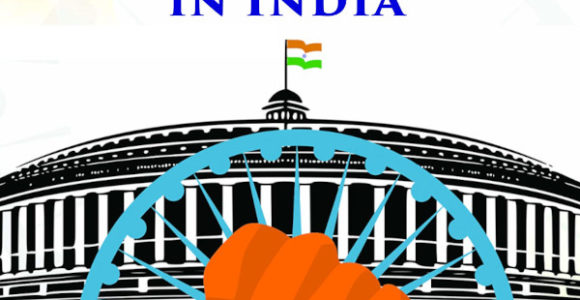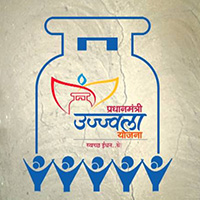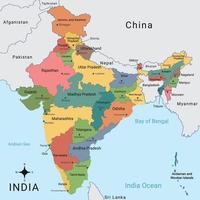Dr. Zakir Hussain

Introduction
Dr. Zakir Hussain was an esteemed Indian politician, the 3rd President of India, and an accomplished scholar. Known for his dedication to education, culture, and social reforms, he was the first Muslim President of India. He played an essential role in shaping India’s post-independence political landscape.
Early Education and Life
Dr. Zakir Hussain was born in Hyderabad in 1897. His father, Fida Hussain, was a respected intellectual and a teacher, and his mother, Zubeida Hussain, encouraged him to pursue knowledge. Dr. Hussain’s early education took place in Hyderabad, and he later moved to Aligarh, where he attended Aligarh Muslim University (AMU). His academic brilliance was evident early on, and he graduated from AMU in 1916.
He later traveled to Berlin to further his education, where he attended the University of Berlin, studying philosophy and economics. His intellectual curiosity and passion for learning made him a well-rounded scholar, but it was in the field of education and social reforms that he would leave his mark.
Contributions to Education
Dr. Zakir Hussain’s passion for education was a defining element of his life. After completing his education in Europe, he returned to India and became involved in the development of the Indian education system.
- Jamia Millia Islamia University: One of his most significant contributions was in the founding and development of Jamia Millia Islamia (JMI), a university located in New Delhi. Established in 1920, JMI was a revolutionary institution founded to promote education that was inclusive, secular, and focused on social welfare. Dr. Hussain was one of the key architects of the university’s development. As Vice Chancellor from 1956 to 1962, he worked to ensure that Jamia became a center of excellence for higher education, particularly for marginalized groups.
- National Integration and Education: Dr. Hussain’s approach to education emphasized national integration and social equality. He believed that education was the key to bridging the gaps between different communities and that it should focus on both intellectual and character-building growth. This perspective made him an advocate for inclusive education, regardless of religious or social background.
Political Career
Dr. Zakir Hussain’s political career, while not as long as his contributions in the field of education, was equally influential.
- Vice President of India (1962–1967): Dr. Hussain was elected as the Vice President of India in 1962. His tenure as Vice President was marked by his contributions to strengthening the democratic structure of India and fostering a sense of unity and purpose during a time of significant political transition.
- President of India (1967–1969): In 1967, Dr. Zakir Hussain was elected as the 3rd President of India. His presidency was significant not only for his policies but for his personal integrity and dedication to public service. As the first Muslim to hold the office of President, his election was seen as a significant moment in India’s secular democratic progress.
- Commitment to Social Issues: Throughout his presidency, Dr. Hussain worked tirelessly to promote education, social justice, and national unity. He was a strong supporter of the social welfare programs initiated by the government, and he advocated for more inclusive policies in education and governance.
- Humanitarian Efforts: He was deeply concerned about the challenges faced by rural India and often spoke out about the need for better economic opportunities for the country’s poor and marginalized communities.
- Death in Office: Dr. Hussain’s tenure as President was tragically cut short. He passed away on May 3, 1969, while still in office, becoming the first Indian President to die while serving. His death was a massive blow to the nation, as he was deeply admired for his leadership, humility, and vision.
Major Works and Legacy
- Promotion of Cultural and Intellectual Heritage: As a scholar and educationist, Dr. Hussain was an advocate for the preservation and promotion of India’s cultural heritage. His efforts in fostering cultural dialogue and exchanges between different regions of India and the world helped to establish India’s position as a diverse and intellectual power.
- Books and Writings: Dr. Hussain authored several books and articles on education, philosophy, and culture. His works continue to be highly regarded for their intellectual rigor and progressive outlook on education and society.
- National Integration: As a leader, he strongly advocated for national integration, calling for efforts to unite India’s diverse population. His presidency furthered this cause by endorsing policies and initiatives aimed at promoting harmony between various communities and religions.
- Educational Reforms: One of Dr. Hussain’s enduring legacies is the reform of the Indian education system, focusing on rural areas and marginalized communities. His influence on the educational landscape continues to be felt today through the institutions and policies that he championed.
Awards & Recognition
Dr. Zakir Hussain received numerous accolades throughout his life for his work in education, public service, and social reform. Some of the most significant awards and recognitions include:
- Bharat Ratna (1963): The highest civilian award in India, which Dr. Zakir Hussain received for his outstanding contributions to the country in the fields of education, culture, and national integration.
- Padma Vibhushan (1954): Recognized for his excellence in public service and education, Dr. Hussain was awarded this prestigious honor.
- Honorary Doctorates: Dr. Zakir Hussain received numerous honorary doctorates from universities around the world in recognition of his significant contributions to education and society.
Personal Life
- Dr. Hussain’s personal life was marked by his commitment to his family, education, and humanitarian causes. He was a man of modesty, humility, and integrity.
- Spouse: He was married to Ammi Zahra, and the couple had children. Dr. Hussain’s family life was characterized by his deep respect for culture, education, and intellectual values.
- Simple Living: Despite his high political status, Dr. Hussain led a simple life, emphasizing that public service was not about wealth or status, but about serving the people with honesty and integrity.
Legacy
Dr. Zakir Hussain’s legacy is not only that of a politician or scholar but that of a leader who genuinely cared for the welfare of the people. His impact on India’s education system, his role in national integration, and his presidency have made him an enduring symbol of dignity, humility, and commitment to public service. Today, Jamia Millia Islamia University stands as a living testament to his educational vision, and his values continue to inspire generations of Indians.
Trivia
- Dr. Zakir Hussain had a strong connection to the arts, especially music. His appreciation for classical music was well known, and he had a deep interest in both Western and Indian art forms.
- He was one of the founding members of the All India Radio, and his commitment to using media for education and cultural promotion played a significant role in his era.
- Dr. Hussain was also instrumental in shaping India’s policy towards minorities, particularly the Muslim community, through his emphasis on education and secularism.
Key Terms:
- academic legacy ,
- Bharat Ratna ,
- Dr. Zakir Hussain ,
- Dr. Zakir Hussain biography ,
- Education Reforms ,
- educational institutions ,
- humanitarian efforts ,
- Indian cultural heritage ,
- Indian education system ,
- Indian educator ,
- Indian History ,
- Indian Politics ,
- Indian universities ,
- intellectual leader ,
- intellectual legacy ,
- Jamia Millia Islamia ,
- leadership in education ,
- Muslim President of India ,
- national integration ,
- national unity ,
- Padma Vibhushan ,
- political career ,
- President of India ,
- Social Reformer
Disclaimer: The information provided here has been compiled from various sources to the best of our knowledge. While every effort has been made to ensure the accuracy of the details, there may be occasional errors or omissions. If you find any discrepancies or incorrect information, kindly inform us so we can make the necessary corrections. Thank you for your understanding and cooperation.





